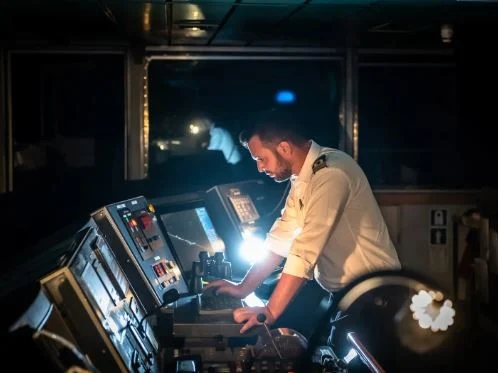For all new cadets joining their first ship
You’ve cleared your exams, packed your bags, and now you’re joining your first ship. Excitement is high. But the real test starts after you climb the gangway.
Every cadet asks this one question:
“Sir, what is expected of me on board?”
Let me tell you, honestly and from a senior officer’s point of view – not the sugar-coated version, but the actual expectations that a Chief Officer has from you.
- Use Your Common Sense
You don’t need to know everything. But use your brain.
If you’re on deck and see someone opening a hatch, try to learn about it starting from the basics and also observing it safely.
If someone is painting, don’t walk through the wet area.
Don’t stand idle and stare – ask, “Can I help, Sir?”
Common sense is more valuable than book knowledge.
- Carry a Small Notebook – ALWAYS
Write down everything, how to operate a fire hydrant, what time toolbox meeting happens, who is the Bosun, what’s the Chief Cook’s name – everything.
Chief Officers hate repeating instructions daily.
> “Sir, what time is chipping tomorrow?”
“It was told today morning, write it down!”
- Be on Time – Or Better, Be Early
Report to duty 10 minutes before. Not on time. Not after.
If it’s 0750, stand outside CCR or deck.
Knock, greet, and ask for instructions.
Being late is one sure-shot way to get a bad remark in your appraisal.
- Respect and Learn From Ratings
Bosun, pumpman, ABs, they’ve been at sea longer than you.
Don’t act “officer-like” around them.
Be polite, observe, and ask them to explain how things work.
You will learn more from an AB’s toolbox than from your college library.
- Keep Yourself and Your Cabin Clean
This shows your attitude.
Clean PPE? Tidy uniform?
Cabin not smelling like a storeroom?
You’re new, but you’re still a future officer. Appear like one.
- Learn Your Job – One Task at a Time
You don’t need to be perfect from day one. But:
Learn to check scuppers during rain
Learn to paint properly
Learn to grease properly
Learn to rig pilot ladder
The Chief Officer is watching your attitude, not just your performance.
- Don’t Argue. Don’t Act Over-smart.
Even if you know something is wrong, stay humble.
You can clarify after the job, but not in front of others.
> “Sir, I thought maybe…”
vs
“No Sir, you’re wrong.”
The first one shows manners. The second one shows ego.
- Be Honest. Own Up to Mistakes.
Mistakes will happen. But don’t hide.
Broke a paintbrush? Tell the Bosun.
Forgot to close the valve? Tell the duty officer.
Chief Officers respect cadets who admit mistakes and learn from them.
- Don’t Use Mobile During Working Hours
Unless it’s your lunch break, the Chief Officer notices when you’re constantly checking your phone.
Onboard, mobile is for talking to family, not for Instagram stories from monkey island.
- Most Important: Show Interest
Ask questions.
Request to learn mooring winch or radar.
Observe tank sounding or ballast operations.
“Sir, may I come and see how you’re doing it?”
This one sentence will impress any Chief Officer more than your certificates.
Final Words from a Senior Officer
A good cadet is not someone who knows everything. It’s someone who wants to learn, respects others, and improves every day.
You’re not there just to pass time or wait for sea-time to finish.
You’re there to build your future, one duty at a time.
“Remember, before you become an officer, you must first become a seafarer.”


